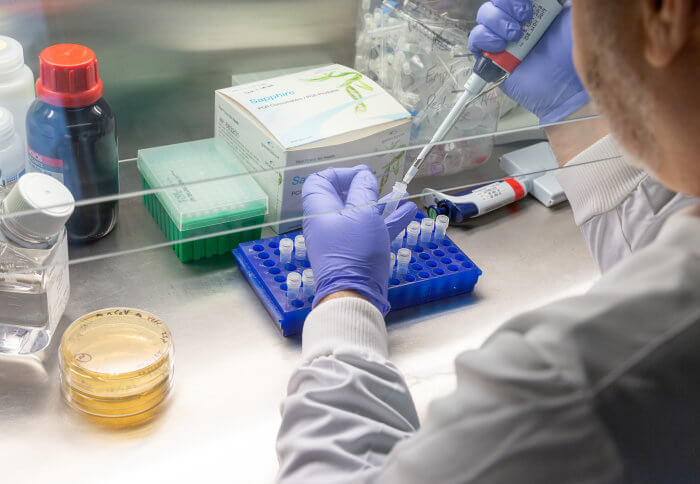Calls for Ukraine
Calls for Europe
Calls for USA
As is known, the success of cancer treatment equally depends on correctly performed radical surgery and therapeutic treatment. For a long time, drug options in the treatment of cancer were limited to chemotherapy. Scientific communities periodically published data on the cure of melanoma after exposure to human interferon (a protein that counteracts the entry of the virus into the cell) or on the extension of survival after cryopreservation of tumor tissues in order to increase the immune response after surgical treatment of lung cancer, but no more. However, in the last decade, immune drugs have been invented to treat lung, breast, colon, skin and melanoma cancers, which increase survival by 4-5 times. After the truly revolutionary results of treatment using immunotherapy were published, the next generation of immunotherapy drugs, antitumor vaccines, began to be actively introduced.
The vaccine is intended for the treatment of metastatic hormone-resistant prostate cancer. It allows tumor regression to occur within 6 months, although treatment leads to benefits in survival or improved quality of life after this period. Provengue is already available on the market.
The creators of this active substance were able to isolate a specific tumor antigen (beta-hydroxylase), which is secreted in more than 20 types of malignant neoplasms in much greater quantities than in healthy tissues. Special viruses recognize cells that intensely express beta-hydroxylase, and then infect such cells and kill them from the inside. It is in the early stages of clinical trials.
The immunological drug modifies the tumor microenvironment so that the tumor cannot synthesize new blood vessels and consume large amounts of glucose. Thus, tumor growth slows down significantly. The vaccine is at the preclinical stage of research.
The vaccine is intended for the treatment of cervical cancer associated with HPV type 16. The principle of its action is that listeria (non-pathogenic bacteria, but causing a pronounced immune response) infects with the HPV type 16 virus and injects the vaccine into the patient’s body. The immune system begins to produce antibodies against bacteria and, after some time, against the virus too. Thus, it is possible to increase the survival rate of patients by 58%. The vaccine is in clinical trials.
The principle of action is the same as that of ADXS-11, only it is intended for the treatment of both HPV types 16 and 18 and is prophylactic (used to treat precancerous diseases of the cervix caused by the action of the human papillomavirus). The vaccine is undergoing the final stages of clinical trials.
Vaccine development has been underway since 2017. It is designed to immunologically target KRAS gene mutations (which occur in 35-40% of colorectal cancers, 90% of pancreatic cancers and 30% of non-small cell lung cancers). If the vaccine is introduced, patients with hopeless forms of cancer will have a chance of cure.
The vaccine is directed against the Mucin antigen (Muc1). It is produced in cancers such as breast cancer, lung cancer and ovarian cancer. The vaccine is just getting ready to be launched into clinical trials, so its effectiveness is still difficult to predict.
These are the most promising developments in the field of immuno-oncology, but there are other drugs that may show potential effectiveness. In 5-7 years, the prognosis of most cancer diseases can change for the better.

Surprisingly, while American and European scientists are developing immunological vaccines, they have been used in the CIS for just over 30 years.
Ukrainian research centers (National Cancer Institute and the R.E. Kavetsky Institute of Experimental Pathology, Oncology and Radiobiology) have developed 2 types of cancer vaccines – dendritic cell vaccine and xenovaccine.
The vaccine is produced from the patient’s biological material. To do this, dendritic cells (immune cells that help T-lymphocytes recognize structures that need to be destroyed) are released from venous blood. A biopsy of the malignant tumor is also taken from the patient. Dendritic cells together with tumor material are mixed and centrifuged. This material is used to produce a vaccine that is administered to the patient.
It is still unknown what exactly dendritic cells react to and what antigens they produce antibodies against, but after such interaction the tumor becomes visible to the immune system. Scientists from the Cancer Institute report a 30% increase in survival after using the vaccine.
Since the dendritic cell vaccine is produced only from its own biological material, it has no contraindications.
The vaccine is made from quail tumor-associated antigens of embryonic origin. Several types of quail embryo antigens have been identified that are similar to tumor antigens. The antigens are mixed with the cytotoxic proteins of B. subtilis B-7025, after which the body begins to give a vigorous immune response to these antigens and others like them. Thus, if tumor cells appear in the body, they have much less opportunity to hide from the immune system.
This makes the vaccine suitable for both patients undergoing cancer treatment and those who want to reduce the likelihood of getting the disease in the future.
First of all, experts from the R.E. Kavetsky Institute of Experimental Pathology, Oncology and Radiobiology recommend Cancerax preventive for risk groups (complicated family history, work in hazardous work, the presence of diseases predisposing to cancer).
Contraindication is individual intolerance to the components of the vaccine.
For a long time, both vaccines were used locally exclusively in patients who were treated at the National Cancer Institute and R.E. Kavetsky Institute of Experimental Pathology, Oncology and Radiobiology. But, due to the growing popularity of cancer vaccines, more and more patients from the CIS and Europe are turning to these institutions to receive the vaccine.
Sources of:
Please rate the work of MedTour
